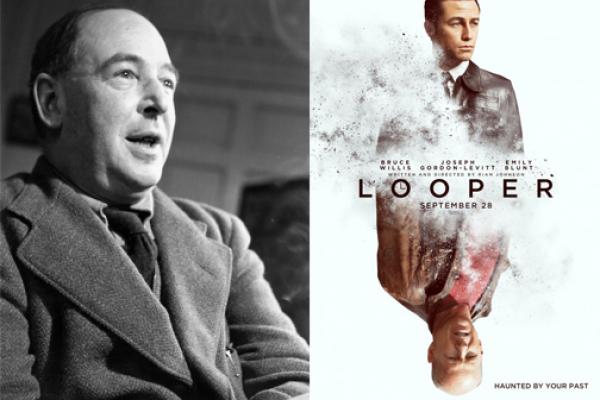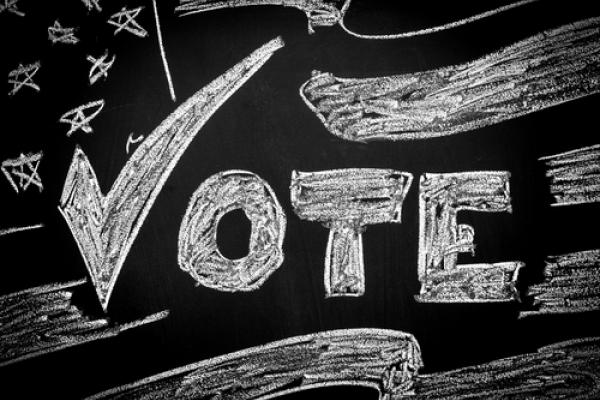I’ve had a number of interesting discussions with various people lately about the notions of hell, salvation and who goes where. It’s a rhetorical exercise for the most part, since no one really knows. But there are plenty of real-life implications, particularly in the sphere of religion. For some, the understanding of what happens to us after we die is the prime mover in their day-to-day faith.
I know that the times when I resonate with more hard-line evangelical theology are few and far between, but in this case, I tend to resonate more closely with them than with my brothers and sisters of the Calvinist (also called Reformed Church) movement. For some not familiar with the differences, common Evangelical belief would suggest that God’s saving grace is available to all who seek it, and that the only thing standing between us and eternal salvation is us and our unwillingness to accept God’s perfect gift. In the Reformed Church, however (represented most prominently today by pastors like Mark Driscoll and John Piper), salvation is reserved for an elect few. The rest of creation will suffer the eternal wrath of God, period.
“Long Time Gone” is David Crosby’s anthem of hope in jeopardy. He wrote it the night Robert F. Kennedy was assassinated.
“I believed in him because he said he wanted to make some positive changes in America, and he hadn’t been bought and sold like Johnson and Nixon – cats who made their deals years ago with the special interests in this country in order to gain power,” Crosby wrote in the liner notes of the 1991 CSN boxed set. “I thought Bobby, like his brother, was a leader who had not made those deals. I was already angry about Jack Kennedy getting killed and it boiled over into this song when they got his brother, too.”
In the ‘60s, the Kennedys represented hope for change: racial equality, economic justice, and abolishing the death penalty, for example. Five decades later, you still don’t see many long-haired politicians, but that hardly seems the matter of dire culture import that it apparently was in 1968. And now we have a black president. Still, on the whole, Crosby’s words seem prescient, rather than anachronistic.
Almost 50 years later, we’re still giving legal benefits to some couples but denying them to others, not to mention that we fill our prisons with brown-skinned people, too many women are still ashamed to report rape or domestic violence, greedy people hoard resources while others go hungry, and the president who campaigned on hope hasn’t been able to bring any real change in our unjust economy.
As the credits rolled after Looper in a packed Chinatown movie theater in Washington, D.C., I simply sat in reverent silence. Moviegoers on all sides began to rise and quietly leave the theater, but for a brief moment all I could do was just sit there. Quite simply, the movie blew my mind.
When I snapped out of it my thoughts started racing, analyzing the ending, which I won’t ruin for you, and the movie as a whole. It wasn’t a question of whether it was “good” or captivating — those were givens. Rather, I started mining the film’s rich themes and questions, particularly what it said about love.
While sitting there, lost in my mind, I began to notice the music accompanying the names moving onscreen. The song’s chorus sang something like, “I loved you so much that it’s wrong.”
I don’t think the song choice was an accident.
That lyric, I think, illuminates the crux of the film: can something like “Love” — not just romantic love — become perverted? Or, in other words, can our love for one person lead us to do horrible things to others?
As the winds and the rain of Hurricane Sandy settle down, one bit of the aftermath is going to be another round of conversation about how climate change is affecting our world.
It’s not a conversation you have heard much of in the presidential campaign this year. Climate change is one of a quartet of issues that will have a huge impact on the future of this nation that have gotten short shrift by both President Barack Obama and Gov. Mitt Romney.
Poverty. Guns. . Drones. Climate change.
Bring up any of those issues and watch the candidates make a quick nod of concern and then scamper away from any specifics. Yet those issues will be with us long after Nov. 6, so it is incumbent on those of us in the faith community to be laying the groundwork now for how we will address them in the coming year.
That work has already begun, of course. The challenge is not to let the post-election exhaustion sweep away those concerns like they were potted palms on a pier in the midst of the hurricane.
During my first year as a second-grade teacher, I struggled with classroom management. I am a soft-spoken person by nature and habit. I didn't have the experience to help me set up great rules and procedures for my students. My classroom was noisy and chaotic. I think you could hear us all around the school.
A well-meaning colleague stopped me one day after school and offered, "Trevor, you need to find your teacher voice. Most of the children at our school won't listen to you unless you yell at them. You need to show them who's boss."
After five years of teaching, I agree that it is important to find your teacher voice. I disagree, however, that your teacher voice needs to be mean and bossy. I found my voice. It’s nurturing and supportive and one that students can internalize for positive growth and change.
I thought about this teacher voice when I met 7-year-old Maria. On her first day in reading intervention classroom, she made a mistake on a skill sheet. She asked for an eraser but I said, "Don't worry if you make a mistake. You don't have to erase it. Just cross it out and fix it. I'll never be angry with you if you make a mistake. I just want you to try to fix it."
In the aftermath of Superstorm Sandy, thoughts on natural disasters, the divine, and 'why bad things happen to good people.'
It seems so easy, doesn’t it? Love God. Love your neighbor. The two greatest commandments encapsulate the core of faith and could — if we really were to trust God — transform the world.
Similarly then and with election day looming, voting should be an easy affair: people of faith should vote for the candidates whose policies would most embody a love of God and neighbor.
It seems so easy, but it isn’t if we are honest with ourselves and gracious towards those who disagree with our political persuasions. No single party or candidate has a monopoly on loving God and neighbor. Moreover, people of passionate faith and commitment to the values Jesus commends in Mark 12:28-34 so often can’t even agree on what these seemingly simple commandments mean.
Such disagreements about what it means to love God and neighbor are at the very center of so many of our political debates.
Some Christians will vote for President Obama, arguing that the most loving thing we can do for our neighbor is to build a stronger social net. Some Christians will vote for Mr. Romney, arguing that the most loving thing we can do for our neighbor is let loose the power of the market to create good-paying jobs for all. Some Christians will cast a ballot for Mr. Romney in support of his stance on abortion. Some Christians will cast a ballot for President Obama, noting that the availability and affordability of basic health care is a pro-life position.
All of us, if we are honest, will vote for a flawed candidate.





